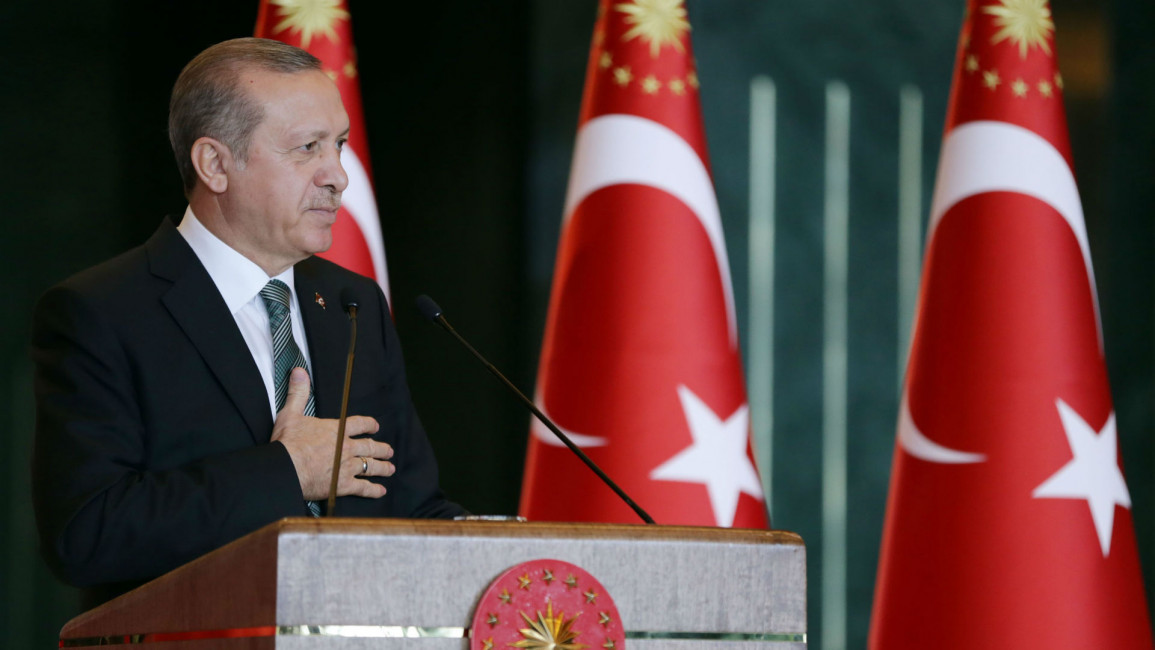Turkish lecturer found not guilty over exam question
A Turkish university lecturer has been acquitted by a court in Turkey over an exam question on a jailed Kurdish rebel chief, in a case that raised questions over freedom of expression in the country.
Resat Baris Unlu had been accused by prosecutors of "terrorist propaganda" after setting students a question comparing two documents written by Abdullah Ocalan, leader of the outlawed Kurdistan Workers' party (PKK).
The question was asked in January 2015 to conclude a course on Turkish politics and institutions.
Unlu faced two separate charges that carry a maximum of seven years in prison - spreading "terrorist propaganda" and "praising the crime and the criminal."
However, the lecturer was acquitted after a 90-minute hearing on Wednesday.
Describing the case as a "blow to academic freedom," Unlu said the aim had been to "deter academics from raising political taboos such as the Kurdish problem."
"It's a kind of an ultimatum not to raise politically sensitive issues," the academic said.
"I've also lost a whole year dealing with court procedures, whereas I could have spent that time on academic research."
In the paper Unlu asked students to "compare Abdullah Ocalan's 1978 manifesto entitled The Path of the Kurdistan Revolution and an article he wrote in 2012 called Democratic Modernity as the Construction of Local System in the Middle East".
Since President Recep Tayyip Erdogan's Justice and Development party (AKP) came to power in Turkey in 2002 there have been growing concerns about freedom of expression in Turkey.
Last week, two leading Turkish journalists were charged with plotting to "violently" overthrow Erdogan's government for an article about Turkey's secret arms shipments to Syrian rebels.
They face life in prison.
Dozens of academics, including Unlu, were labelled "terrorists" last month after signing a petition criticising the government's continuing military offensive against the PKK.
 |
Human rights activists, independent journalists, academics and others are 'sounding the alarm bells over a dramatic worsening of human rights conditions in the country,' - Human Rights Watch |
 |
This led to signatories being harassed, the launch of a criminal investigation, and pressure being placed on universities to investigate and even dismiss them.
"Political pressure, insults and threats are reminiscent of fascism beyond authoritarianism," said Unlu.
"There is no longer free press, no independent judiciary in Turkey. Only a few universities are speaking the truth.
"They will remain a target for the government just because they keep speaking the truth."
Human Rights Watch said yesterday that human rights activists, independent journalists, academics and others in Turkey are "sounding the alarm bells over a dramatic worsening of human rights conditions in the country."
Yasemin Congar, one of the founders of P24 - a media freedom group, told HRW that many media are facing unprecedented measures to halt independent reporting.
She said that 33 journalists are in prison for their work, that many gag orders have been imposed to stop coverage of sensitive issues, and that dozens of journalists have been fired at the government's request.
"We thought a couple of years ago it could not get worse," she said. "Now it certainly has."
During his visit to Istanbul in January, US Vice President Joe Biden criticised Turkey for failing to set the right "example" on freedom of expression.
In a rare rebuke for a NATO ally, Biden said journalists were being "intimidated or imprisoned for critical reporting."



